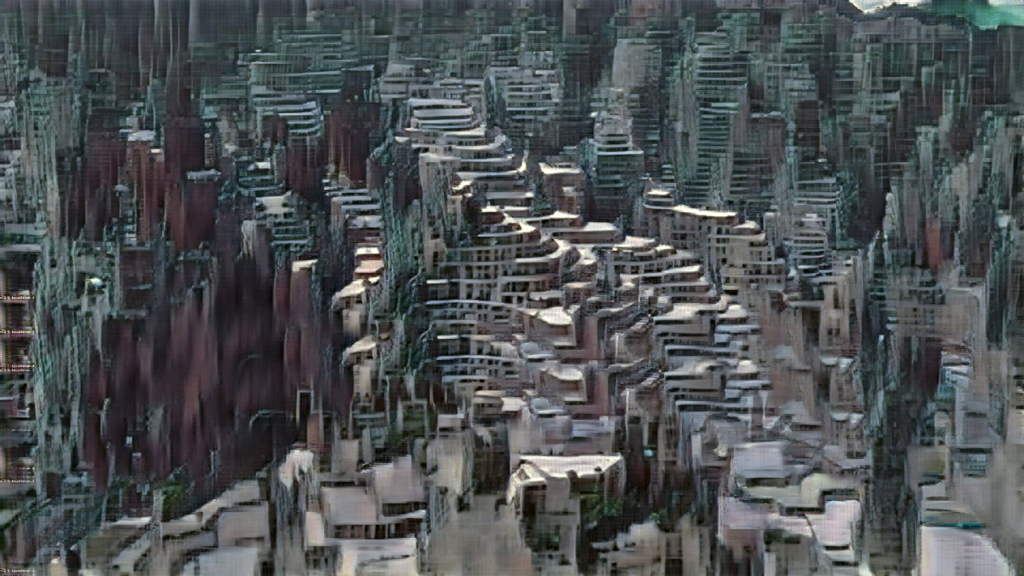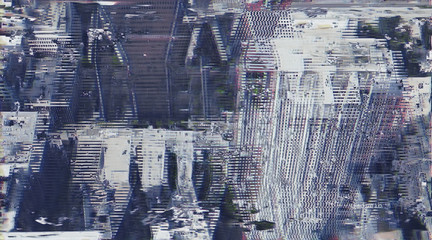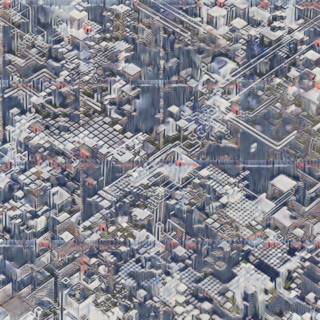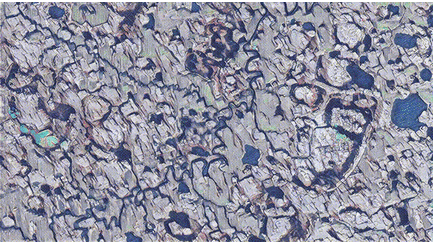
Latent Realities
289 Technology Seminar
2021
Reimagining Architecture and Space through the Lens of Machine Learning in the Age of Big Data
We are at a peak of data production and consumption and, simply, its political, economical, cultural, and social value. The enhanced availability of data and new developments in Artificial Intelligence (AI) and Machine Learning (ML) allows architects and designers to include a new agent, the machine, into the design process. Meaning, we explore how the built environment is perceived, evaluated, and generated through the lens of a machine entity in the age of Big Data. Data is the fuel for each ML algorithm to develop intelligence, the ability to make decisions and to imagine.
In popular culture the viral use of Deep Fakes is just one example of creating fictional realities through AI in the Age of Big Data. In this seminar, we investigate how to use these emerging technologies to speculate on parafictional realities of the built environment. We start with factual data about architecture, history, style, socio-economic statistics, climate change and the anthropocene. These facts are stretched and hybridized into architectural parafictions generating new realities which are imagined in the ML’s latent space. Despite creating architectural paraficitons, we are concerned about the use, access and the production of data for such ML operations. Therefore we investigate how to create biased and unbiased architectural datasets from satellite imagery, 3D models, elevations and perspective photography. Subsequently we discuss a technocritial approach towards the use of AI and data in architecture and speculate on the role of the architect in collaboration with AI.
Related Faculty |
Benjamin Ennemoser |
Related topics |
Technology, Climate Change |



- Farm Urbanism by Marina Archangeli, Katty Zhao, Sidney Ortega
- TOWARDS A DIGITAL CITY by Rui Qiu
- Project by Marina Archangeli, Sidney Ortega, and Yuemeng Zhao
- Project by Rui Qiu, Dylan Hart, and Xinyu Yan
- Rui Qiu, Dylan Hart, and Xinyu Yan
- Kim, Wang, Wei
- Kim, Wang, Wei